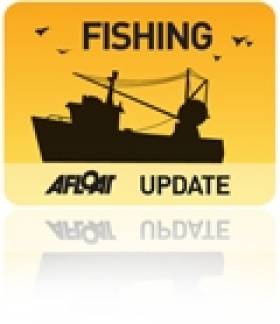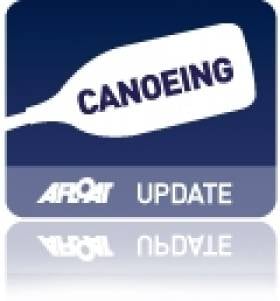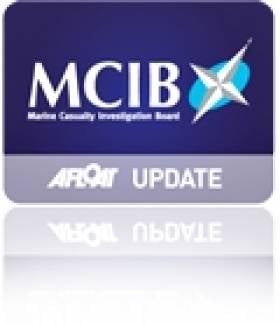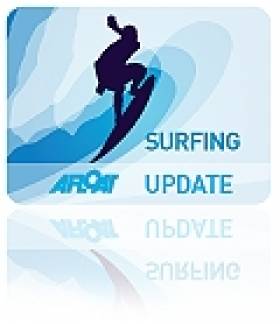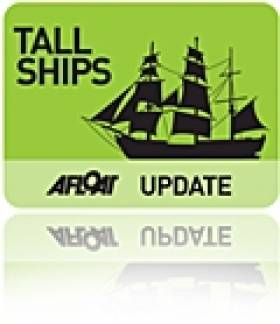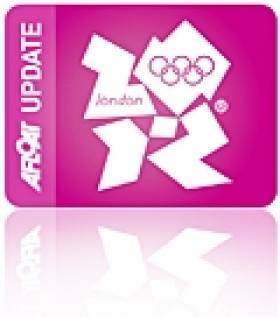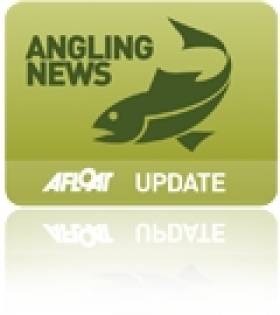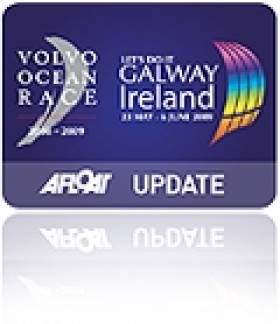Displaying items by tag: 2012
Fishing Industry Welcomes Selective Nets, Grant Aid at Irish Skipper Expo
#FISHING - Minister for the Marine Simon Coveney briefed the Irish Skipper Expo in Galway last weekend on a new initiative promoting the use of selective conservation fishing nets, which allow young fish to escape.
Under the initiative in the Celtic Sea, additional quotas of up to 25% will be made available by the minister to skippers of Irish fishing boats which use an escape panel in their nets, allowing young whiting and haddock to escape.
The escape panel, developed by the Irish industry, has been endorsed at EU level and is expected to be a mandatory requirement later in the year.
Minister Coveney said on Saturday: “The use of this panel will significantly reduce discards of juvenile whiting and haddock in the Celtic Sea, allowing juvenile fish to grow and mature and contribute to increased stock size and returns for fishermen in future years.
"I believe that this offers an example of a practical approach to dealing effectively with the discards problem and retention of a flexible quota allocation system that we should take forward in the context of the Common Fisheries Policy Review."
In other news, Bord Iascaigh Mhara (BIM) announced €1.5 million in grant aid for the Irish fishing industry at the expo.
A spokesperson for BIM confirmed to the Galway Independent that the funding will be available to industry through a variety of schemes including fleet safety, seafood environmental management, lobster V-notching and coastal action groups.
Over 100 companies displayed their products and services to fishermen at the Irish Skipper Expo International 2012, held at the Galway Bay Hotel on 24-25 February.
- Fishing
- commercial fishing
- Minister for the Marine
- Simon Coveney
- Irish Skipper Expo
- Skipper Expo International
- 2012
- Galway Bay Hotel
- Galway
- conservation
- selective
- quota
- Celtic sea
- initiative
- discards
- grant aid
- Bord Iascaigh Mhara
- BIM
- Funding
- Coastal
- Seafood
- whiting
- haddock
- juvenile fish
- Common Fisheries Policy
Dublin Hosts First ISAF Development Symposium in March
#DEVELOPMENT - Representatives from the International Sailing Federation's member nations throughout the world will meet at Howth Yacht Club from 17-18 March for the inaugural ISAF Development Symposium.
The aim of the two-day conference is to develop the criteria and future strategy for sail training and development within the governing body of world sailing, based on three core requirements:
- Fulfilling requirement set out in the ISAF Constitution to develop the sport and increase participation;
- Providing a structure for the sport to grow to meet expectations of the International Olympic Committee; and
- Supporting member nations in growing the sport in their own countries.
"Training is the key that will unlock and secure the future for our sport," said the ISAF in its development statement at the federation's annual conference last year.
Dublin was chosen as the host location for this first symposium as it will be hosting the ISAF Youth Worlds in July, just before the 2012 Olympic Games in London.
The international delegates, chaired by event organiser and ISAF training and development manager Dan Jaspers, will be supported by a group of ISAF representatives such as vice president Nazli Imre, development and youth committee chairman Olivier Bovyn, ISAF-nominated experts and the World Youth Sailing Trust coach, as well as invited specialist technical advisors.
More information about the ISAF Development Symposium is available HERE.
UL Take Title at Irish Kayaking Intervarsities
#KAYAKING - The University of Limerick were overall winners in the 2012 Irish Kayaking Intervarsities at GMIT Castlebar last weekend.
As the Mayo Advertiser reports, some 500 students were on hand for the three days of competition, which kicked off with canoe polo on Lough Conn (won by GMIT over DCU).
Saturday's action saw the whitewater contest on the Clydagh River, with Limerick emerging on top, and the freestyle event on the River Clare at Tuam Wave.
Sunday closed with the long distance event at Lough Lannagh, which clinched the weekend for UL's kayakers.
Mayo also hosted the Irish Intervarsity Sailing Championships in Rosmoney last week, which attracting 200 students to the Westport area.
Safety Advice for Leisure Boaters in MCIB's Helvick Head Report
#MCIB - The Marine Casualty Investigation Board (MCIB) has called for better safety awareness among leisure boat users in its report into the deaths of two men off Helvick Head in Co Waterford in May 2010.
John O'Brien and Pat Esmonde were lost overboard from their small RIB on 23 May 2010, and their remains were recovered two days later. Post-mortems confirmed that both died by drowning.
The report does not conclude exactly how the incident occurred. But accounts from eyewitnesses who sighted the men in the minutes before state that neither was wearing a lifejacket, despite the legal requirement to do so - and despite O'Brien having no seafaring experience and Esmonde being unable to swim, as confirmed by their families.
The MCIB also noted that while there were two lifejackets aboard the vessel, they were for emergencies and not suitable for constant wear as per the requirements for the vessel class.
Other safety issues highlighted include the kill-cord on the engine, which was not being used, and the fact that the initial distress call was made by mobile phone and not VHF radio.
Though neither had any bearing on this specific incident, the MCIB warned in particular that mobile phone calls are closed in nature, whereas VHF distress calls can be heard and answered by any vessel in the vicinity.
The board recommends that the Minister for Transport "undertakes a highly visible information poster campaign on piers and launching areas relating to lifejackets, VHF radio and emergency contact details" and also reminds boaters of their legal obligations.
The full report is available to download as a PDF from the MCIB website HERE.
Irish Six in Peru for SUP and Paddleboard Worlds
#SURFING - A six-strong Irish team is in Peru to compete in the inaugural World Stand-Up Paddle and Paddleboarding Championships, which commence today (19 February).
The surfers have travelled at their own expense to the Peruvian capital Lima to take part in the International Surfing Association-sanctioned event, where they will contest against paddleboarders from 19 other countries.
“It is the first of its kind and we wouldn’t want to miss out," team member Paul Byrne told TheScore.ie. "The fact that it has been recognised enough to hold an international competition means stand-up padding (SUP) is here to stay.”
Dubliner Byrne first got involved in SUP in Australia, and found on his return to Ireland that he and his friends didn't need to seek out the popular surf out west to keep up with the sport - the swell produced by ferries in Dublin Port is just what they needed (see video of Dave Owens above).
Byrne joins Owens, Finn Mullen, Ed O'Farrell, Keith Gorman and Jane Downes in South America for the World Championships, which run till 25 February.
“We been competing in Europe," he says, "but it is sure to be tough against surfers who are sponsored to do it for a living.”
Tall Ships Training Opportunities for Young People Across Ireland
#TALL SHIPS - The organisers of the Tall Ships Races visit to Dublin are inviting young people to get involved by becoming 'trainees' aboard the fleet as they race from Spain to Ireland this summer.
The 18 ships (as of last November) are set to sail from A Coruña in northern Spain to Dublin on the final leg of this year's race over an estimated ten-day period from 13-23 August.
Young people across Ireland can now apply to be trainees on board the tall ships and take part in a voyage as crew. No previous experience is necessary.
Open information days are planned for this weekend from tomorrow (Friday) 17 February to Sunday 19 February from 12pm to 6pm daily at the CHQ building in the IFSC, close to the Jeannie Johnston museum.
Anyone that is interested in taking part or receiving further information can register at www.dublintallships.ie/trainees/
Meanwhile, organisers are also making funding available for the young people of the capital.
The Dublin City Tall Ships Funding will cover the costs of 25 trainees from Dublin to sail on the ships as they race from Spain.
Any youth organisation within Dublin City Council Administrative Area can nominate members of their organisation. Alternatively, individuals may apply and seek the nomination of a youth organisation such as a youth group or community group; school or college; sports club or Scouts group.
Details about this funding programme and other opportunities are included in the information bulletin attached below.
For further information contact trainee recruitment officer Michael Byrne at [email protected].
'Podium Athletes' Face Funding Cuts in 2013
#OLYMPICS - Yesterday Ireland's Olympic hopefuls celebrated recognition of their success in the 2012 round of funding.
But cuts to the budget of the Irish Sports Council (ISC) have prompted a "major" review of high performance programmes from 2013 onwards, the Irish Independent reports.
Finbarr Kirwan, director of high performance at the ISC, said: "Changes are coming, things are tight and we will have to make strategic cuts in the next two years."
The result could be fewer grant awards of lesser value for athletes, as Olympic qualification standards are set to get tougher from here on out.
The two tiers below 'podium class' - in which individuals receive awards of €20,000 and €12,000 respectively - are expected to be hardest hit in the review.
As previously reported on Afloat.ie, canoeing's Eoin Rheinisch, swimmer Grainne Murphy and sailors Annalise Murphy, Peter O'Leary and David Burrows each received the top level of funding of €40,000 each, which is on a par with last year's support.
The Irish Independent has more on the story HERE.
NI Fields First Full Team at Commonwealth Fly Fishing Championships
#ANGLING - Two Newtownabbey anglers are part of a six-man Northern Ireland team competing at the 2012 Commonwealth Fly Fishing Championships, which started yesterday in Tasmania.
The Newtonabbey Times reports that Kenny Ferguson and team captain Alan R McDade set out for the Australian island last Wednesday for the competition that runs till 19 February.
They join Campbell Baird and Harvey Hutchinson from Carrickfergus, Banbridge angler Neil Cardwell and Harry McAteer Jr from Belfast for the week-long contest.
The six - who qualified from contests held throughout Ireland organised by the Trout Anglers Federation of Ireland - also comprise the first full team that Northern Ireland has entered in the competition.
Jameson Producer Signs On as Volvo Ocean Race Fest Sponsor
#VOLVO OCEAN RACE - The producer of Jameson whiskey has been announced as the spirit and wine sponsor of the Volvo Ocean Race Festival in Galway this summer.
The Galway Independent repors that Irish Distillers Pernod Ricard will be represented at the festival by their brands Jameson, GH Mumm champagne and Brancott Estate wine.
Managing director Pat Magee said: “We are delighted to be the spirits sponsor of the Volvo Ocean Race.
"It is a huge honour for Galway and Ireland to be chosen as the final destination, and a real opportunity for Ireland to show to an international audience our capabilities and successes."
As previously reported on Afloat.ie, organisers of the Volvo Ocean Race stopover this July have promised the event will be "bigger and better" than the previous visit in 2009.
The City of the Tribes competed with 81 locations around the world to be given the honour of hosting the final leg and the closing ceremony of the classic race.
The Galway Independent has more on the story HERE.
Ireland to Showcase 'Planet's Biggest Waves' on 2012 Kite Surf Tour
#KITESURFING - Ireland will be one of four stops on the 2012 Kite Surf Pro World Championship Tour to decide the best wave kitesurfers in the world, Surfer Today reports.
Kicking off in Cascais, Portugal in June before heading to Mauritius in September, the tour will come to Ireland's west coast - described as "Europe's secret kite surfing jewel and home to one of the planet's biggest waves" - from 19-28 October.
According to Surfer Today: "Ireland's Kite Surf Pro will incorporate a unique mobile format, capable of showcasing each day's action at the choicest of locations on the country's wild and swell-abundant west coast."
The tour will wrap up in Maui, Hawaii from 29 November to 8 December, where the €15,000 prize purse wil be up for grabs at the famed surfing venue of Ho'okipa.
Surfer Today has more on the story HERE.


























